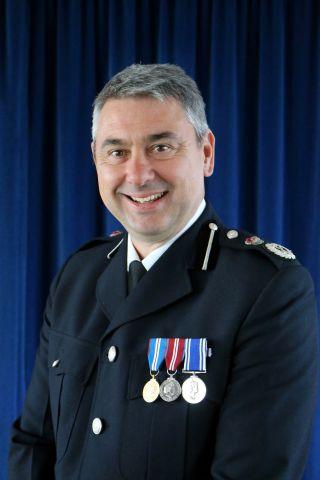
This article originally appeared in Policing Insight on 26/05/2020.
The world of forensics suffers from fragmentation, skills shortages, an unstable marketplace and lack of investment and accreditation. But NPCC Forensics Lead and Dorset Chief Constable, James Vaughan, says police forces can make a bright future for forensics – with help from the new national Forensic Capability Network.
I probably don’t need to spell out the problems facing forensic science in policing. In February, the Forensic Science Regulator, Dr Gillian Tully, said that forensics “has been operating on a knife-edge for years”. There is a fragmented approach to services, too much divergence in quality and standards, lack of accreditation, skills shortages and instability in the commercial marketplace, and in some cases a mindset towards doing forensics ‘how we’ve always done it’ – to name a few.
We all agree there is an urgent need to tackle these big forensics challenges. We need better forensics in order to meet our Policing Vision 2025 and the Home Office’s forensic science strategy. We have to grab hold of digital forensics if we are to catch up and keep up with the changing nature of crime and the opportunities offered to us through technology. And forensics must better support the government’s priorities of cutting crime, catching criminals, protecting the public and increasing trust.
Again, I doubt I have to tell you about the transitional times policing is in. To put it simply, crime, technology and public opinion are all changing – and forensics is changing too.

The forensics shift
Our extensive investigations into the forensic landscape over recent years have shed light on several issues facing the sector.
The biggest challenge in forensics is keeping up with the pace of change in digital. In the UK, we have ended up with a patchwork quilt of cottage industries across policing and commercial providers, trying to meet growing demand with ad-hoc capacity and capability. But the current trajectory is doomed to fail. What we do is train more and more people in digital and data forensics, where we actually need a radical redesign of how we approach those services. We need an industrialised, consistent and standard approach to the use of technology, for example in harnessing automation to deliver better results quicker as well as reducing the emotional distress for our teams caused by investigating disturbing images. We must take a whole-system approach, where digital forensics is integrated into wider police ICT infrastructures, with each complementing the other. Let’s also think differently about how we work with and draw ideas from academia and the private sector. And we have to support the Government in ensuring we have a legislative and policy framework that enables us to appropriately use digital forensics and big data to deliver the best judicial outcomes and increase public trust. Without that transformation, we’ll continue to be stuck on the curve and not making any progress against the backlog.
We also have work to do on accreditation for forensic services. It simply can’t be the case that we are entering evidence into the criminal justice system using forensic techniques that aren’t validated, or from teams that aren’t accredited to perform the analysis. I understand that accreditation is a major challenge for forces in both time and investment, and that the October 2020 deadlines have shifted to the right due to coronavirus, but this should still be non-negotiable. Importantly, if we embed the right culture into our quality standards, then accreditation stops being a tick-box exercise and becomes a means to continuous improvement.
There’s also a problem familiar across all of policing – fragmentation. Forensic science units are trying to solve the same problems in different ways. We often can’t share information with neighbouring forces because we use different systems and processes. It’s inefficient and creates risk. So, a national approach will save time and money, and give us strength in numbers.
As Sir Thomas Windsor said at this year’s NPCC and APCC Partnership Summit: “Having 43 forces means barriers to detection and prevention, whereas we need a seamless and integrated operation”. They were sentiments shared by NPCC’s Lead for Biometrics, Andy Cooke, who said “we need to be cohesive across the whole system. Being unified and coordinated will make a more effective response”. I can only agree with these ambitions, but the question is: how do we make it happen? To a growing group of us, the answer for forensics comes from a new networked approach.
Introducing the Forensic Capability Network (FCN)
FCN is the new network for forensic science in England and Wales. Established in April 2020, it is already the UK’s largest forensics network, supporting more than 4,000 specialists with critical technology, advice and training across 43 police forces and many law enforcement agencies.
If you take into account those forensic specialists working in industry and academia—all of whom are encouraged to join FCN in some capacity—that number is probably nearer 10,000 people.
The vital philosophy behind FCN is that it is a membership body: for policing, by policing. Decisions, rights and responsibilities are all shared between members, because we all believe that working together is better than apart. We should do things once, for the benefit of all.
So, FCN enables the forensics community to connect, share, solve problems and create opportunities together. Its impact ranges from crime scene investigation, fingerprint enhancement labs and identification bureaux, to imaging and digital forensic units.
The network is funded by the Home Office for 2020-21 through reallocation from the police grant, and it is hosted by me and PCC Martyn Underhill at Dorset Police, employing 27 highly skilled specialists nationwide.
FCN provides members with a wide range of scientific, quality, operational and commercial services and products. These include new technology to digitally transfer evidence from crime scenes to laboratories and bureaux, tailored advice on raising quality standards and getting accredited, and brokering forensic services between forces. We are also investing again in R&D and innovation, a key area which was one of the first to be starved of financial oxygen when austerity hit.
On those big challenges I mentioned earlier, FCN is bringing together members to help meet the issues head-on. The network has a dedicated quality team supporting units to understand national standards and prepare for accreditation. It is soon to publish a digital forensics strategy setting out the direction of travel for years to come. It will also implement new forensic products, services and capabilities that members have asked for, and which the NPCC programme Transforming Forensics, is creating right now. And, as a network, we are already tackling the problems of fragmentation by coordinating activities and making links between members.
This may not sound like revolution in the traditional sense, but this is a sea-change in how policing approaches forensic science. In some years’ time, the UK could be home to the world’s most advanced and coordinated forensics network. That genuinely is my hope for FCN.
A silver bullet this is not. But FCN does account for seven out of 13 actions recommended in the joint review of forensics provision on delivering high-quality forensics into the criminal justice system, published in April 2019 by the Home Office, APCC and NPCC. I would say that represents a significant impact.
Join the change
Returning to my earlier question, when it comes to solving the problems facing forensics, how do we make it happen? I think we already know that the answers come in more integrated working, investing in digital, training our people and making a more sustainable commercial marketplace. We also have national strategies behind all these activities. Now we have a forensics network with a national overview, the time has never been better to take on these issues.
It will be a challenging transformation in many ways, and there are sceptics out there. But I am committed that FCN should keep ‘singing for its supper’ in the coming months and years, working on behalf of forces to help them evolve and excel.
Like I said earlier, forensics is changing. Let’s all be part of the change together.
To request a service or ask a question, please contact us.